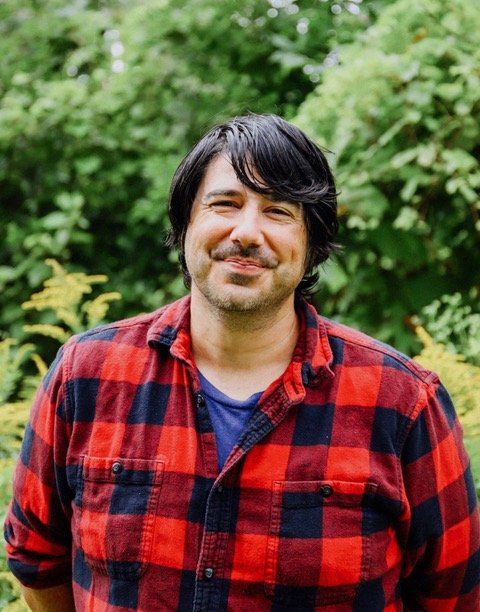As we dive into Mental Illness Awareness Week (MIAW) from October 6-12, it's a timely reminder that mental health isn't just a buzzword—it's a vital part of our shared well-being. This year's theme, inspired by organizations like the National Alliance on Mental Illness (NAMI), focuses on reducing stigma, promoting early intervention, and building supportive communities. With World Mental Health Day on October 10 right around the corner, let's take a moment to reflect, share, and act. In this post, we'll explore why awareness matters, highlight trending conversations, and offer practical steps to get involved. Whether you're navigating your own challenges or supporting a loved one, you're not alone.
Why Mental Illness Awareness Week Matters Now More Than Ever
Mental illness affects millions worldwide—according to the World Health Organization, nearly 1 in 8 people live with a mental disorder. In the U.S. alone, about 1 in 5 adults experience mental illness each year, yet stigma often keeps people silent. MIAW, established by Congress in 1990, aims to change that by educating, advocating, and empowering.
This year, amid rising burnout from work, social media pressures, and global uncertainties, conversations are buzzing. On platforms like X (formerly Twitter), users are sharing raw stories under #MIAW2025 and #MentalHealthMatters, from personal triumphs over anxiety to calls for better access to therapy. It's heartening to see vulnerability turning into strength, reminding us that seeking help is a sign of resilience, not weakness.
Trending Topics in Mental Health: What's Resonating in 2025
1. Breaking the Stigma Around Seeking Help
Stigma remains one of the biggest barriers. Posts about normalizing therapy are going viral, with creators distilling "years of therapy in minutes" through short videos and threads. Remember: Therapy isn't a luxury; it's a tool. If you're hesitant, start small—talk to a trusted friend or explore free resources like the National Helpline (1-800-662-HELP in the U.S.).
2. Self-Care as Everyday Medicine
From morning walks to journaling, self-care routines are being hailed as "free therapy." In a fast-paced world, simple practices like mindfulness or exercise can rebuild emotional toolkits. One popular tip circulating: Build a support system with faith, community, or hobbies. As one X user put it, "Letting go of toxic relationships is top-level self-care."
3. Men's Mental Health and Community Building
Men's mental health is gaining traction, challenging outdated notions of stoicism. Gatherings focused on brotherhood and open talks are trending, emphasizing that vulnerability strengthens bonds. Stats show men are less likely to seek help, so initiatives like these are crucial.
4. Addressing Specific Conditions Like Anxiety and Depression
Anxiety antidotes (e.g., gradual exposure) and radical acceptance for depression are hot topics. With adult-onset mental health issues persisting, quotes like "Be patient with your healing" are offering comfort. If you're struggling, know that conditions like bipolar disorder or PTSD are treatable—early awareness saves lives.
5. The Role of Digital Wellness and AI
Emerging trends include AI-driven therapy apps and digital detoxes. While technology offers new tools, balancing screen time is key to preventing overload.
To visualize the impact, here's a quick overview of common mental health challenges and supportive actions based on current awareness efforts:
Anxiety: Affects 1 in 3 adults; spiked post-pandemicPractice deep breathing or apps like Calm. Depression: Leads to 700,000+ global suicides annually. Journal daily; connect with hotlines like 988 (U.S. Suicide & Crisis Lifeline). For anxiety and depression, seek therapy that uses elements of cognitive behavioral therapy (CBT), mindfulness based cognitive behavior therapy (MBCT), acceptance and commitment therapy (ACT) or other evidence based approaches.
Stigma: 60% of people avoid help due to judgment. Share your story anonymously online or join support groups.
Burnout: Rising in workplaces. Set boundaries; incorporate "me time" like walks or hobbies.
These stats underscore the urgency—awareness isn't passive; it's proactive.
How You Can Get Involved This Week
Awareness starts with action. Here are easy ways to participate:
Educate Yourself and Others: Read resources from NAMI. Share infographics or facts on social media.
Practice Self-Compassion: Try one new self-care habit this week. Need inspiration? Follow #SelfCareSunday threads.
Support Loved Ones: Listen without judgment. A simple "I’m here for you" can make a world of difference.
Advocate for Change: Contact lawmakers for better mental health funding, or donate to organizations like Mental Health America.
If you're in crisis, reach out immediately—help is available 24/7. For immediate support, call the National Suicide Prevention Lifeline at 988. If you are in a life-threatening mental health emergency, call 911 or go to your nearest emergency room. Our Walk-In clinic can connect you with same-day help for urgent, non-life threatening support. During business hours, call (866) 522-2472 and ask for a same-day Walk-In appointment. You can also reach us through the “Contact Us” page on www.birchcounselingwalkin.com
A Final Thought: Hope in the Conversation
Mental Illness Awareness Week isn't just seven days; it's a catalyst for year-round change. By shining a light on these issues, we foster empathy, reduce isolation, and build a healthier society. As we approach World Mental Health Day, let's commit to kindness—starting with ourselves.
What’s one step you'll take this week?
Resources to Explore:
NAMI: nami.org
SAMHSA: samhsa.gov
World Federation for Mental Health: wfmh.global
Stay well, and remember: Your mental health matters. 💚




















